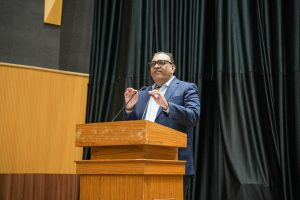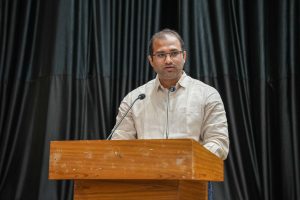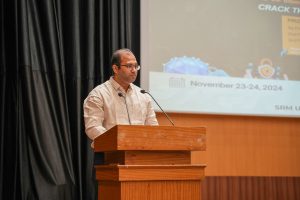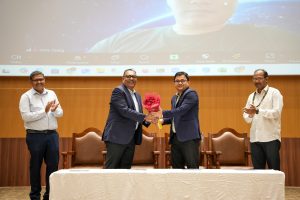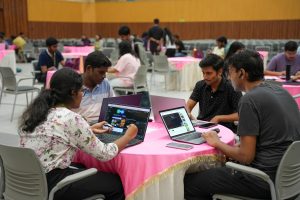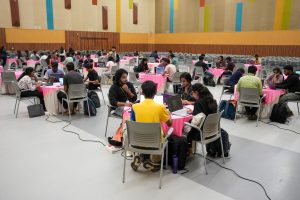Recent News
- SecureX Hackathon: Students Shine at the Cybersecurity Codefest November 26, 2024
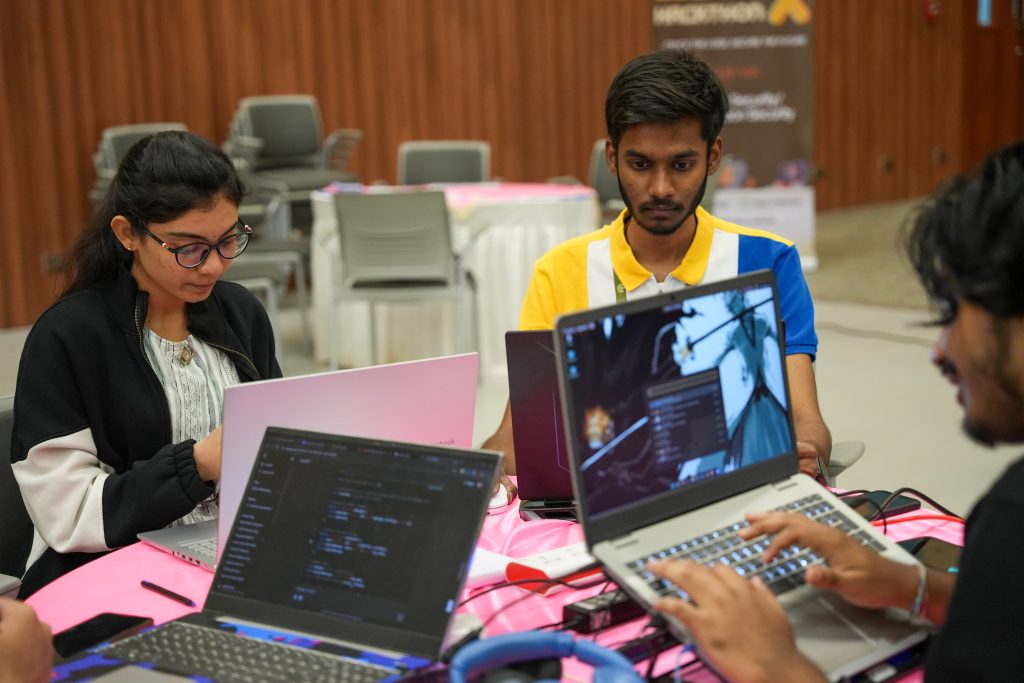
The Cybersecurity Hackathon “Crack the Code & Secure the Future”, held at SRM University-AP in collaboration with BSI Learning on November 23-24, 2024, marked a significant achievement, bringing together students, professionals, and experts in the field to tackle real-time cybersecurity challenges. The event provided participants with hands-on expertise and the opportunity to design innovative solutions aimed at addressing the growing concerns in the field of cybersecurity.
The hackathon opened with an inspiring speech by the Dean of Research Prof. Ranjit Thapa, who emphasised the university’s dedication to fostering innovation and research from the very beginning of a student’s academic journey. He highlighted the importance of the event, stating that all participants would receive certificates of appreciation, reinforcing the university’s commitment to recognising and motivating talent.
Mr Vipul Rastogi, the keynote speaker, expressed his admiration for SRM University-AP, particularly impressed by the institution’s provision of seed funding for undergraduate students, something he had not encountered elsewhere. Mr Vipul, a seasoned cybersecurity expert, stressed the growing demand for cybersecurity professionals, citing that 40% of cybersecurity positions remain vacant due to the rapidly expanding threat landscape.
Mr Chris Chan, the Cybersecurity Education Lead and Consultant at BSI Learning, Australia, provided valuable insights into the intricacies of cybersecurity, including areas such as penetration testing, cloud security, governance, risk, and compliance. Mr Chan also elaborated on the importance of user education, vulnerability management, and organisational resilience in mitigating cybersecurity risks.
Participants, divided into 22 teams with 81 members, were challenged to design and implement innovative solutions addressing one of the following key cybersecurity areas: Prevention and User Education, Detection and Monitoring, Response and Mitigation and Policy Compliance and Business Continuity.
The event focused on fostering a collaborative environment where participants could experiment, innovate, and deliver real-time solutions to cybersecurity problems. Team Tech Blazers won the first prize of 800 AUD, while Team Secure Ops and Team Soul Society won the second and third place of 500 AUD and 200 AUD respectively. All teams contributed actively to providing outstanding solutions, adding a competitive yet educational aspect to the hackathon.
The event concluded with a vote of thanks to Vipul Rastogi, Chris Chan, and all participants for their valuable contributions. The Cybersecurity Hackathon was a resounding success, showcasing the power of collaboration, innovation, and secure solutions in addressing the pressing challenges of today’s digital world.
The university looks forward to continuing such initiatives, further strengthening its role as a leader in research and innovation in the academic community.
Continue reading → - CSE Student Publishes in Q1 Journal on Breakthrough Research in Water Technology November 25, 2024
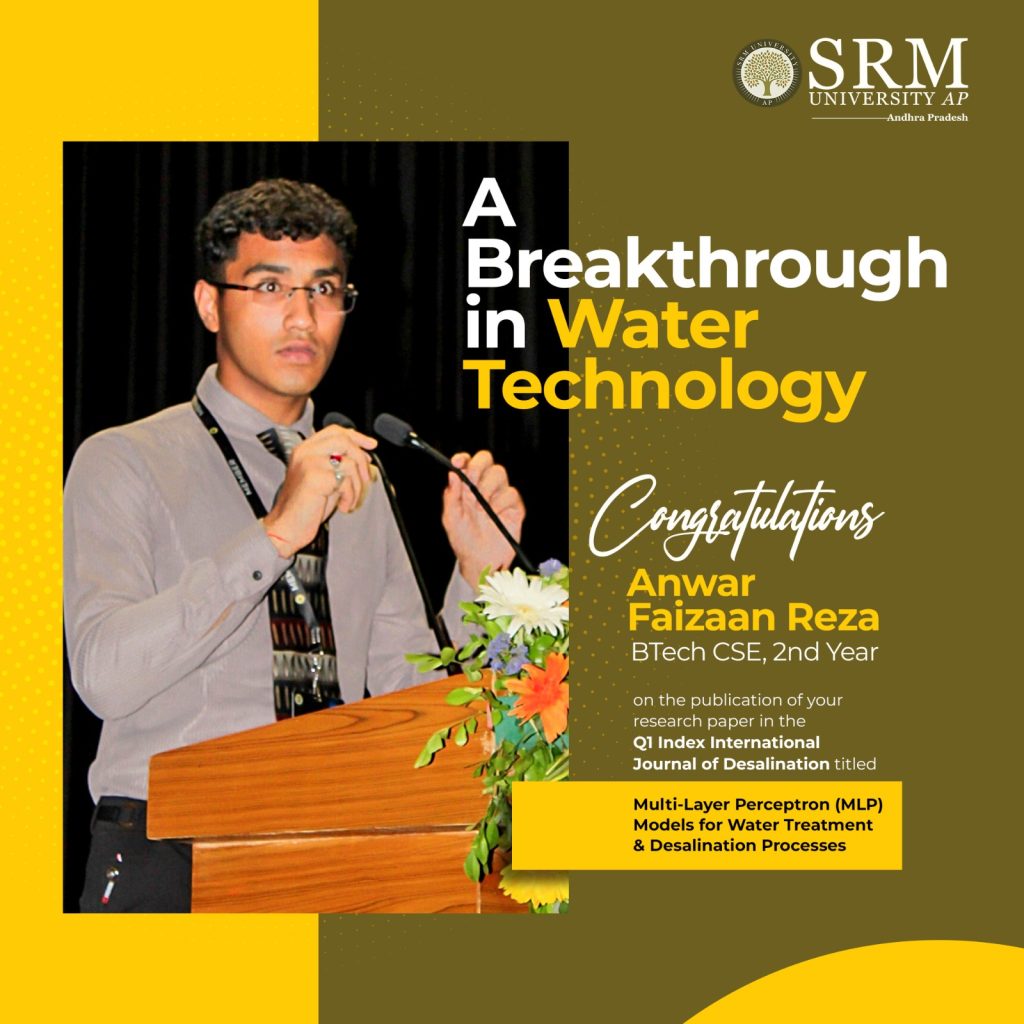
Exemplary student achievements in academia, research and industry are a testament to the excellence nurtured at the SRM University-AP. Mr Anwar Faizaan Reza, 2nd year B.Tech. student from the Department of Computer Science and Engineering has published his research paper in the prestigious Q1 journal Desalination. His paper titled “Multi-Layer Perceptron (MLP) Models for Water Treatment and Desalination Processes” provides a comprehensive review of Multi-Layer Perceptron (MLP) models as innovative tools in water treatment and desalination processes.
With the growing global water scarcity due to increasing population and urbanisation, the study emphasises the need for advanced technologies to optimise water management. Mr Reza discusses how MLPs, a type of artificial neural network, can effectively handle complex, non-linear data, making them suitable for predicting water quality and treatment efficiency.
The paper compares MLPs with traditional models, highlighting their advantages in adaptability and accuracy. It also addresses the limitations of MLPs, such as their dependence on high-quality training data and susceptibility to overfitting. Additionally, the research identifies existing gaps in the application of MLPs in real-world scenarios and suggests future opportunities for integration with other AI techniques and real-time data analysis.
In his paper, Mr Anwar Reza proposes that MLPs can significantly enhance decision-making in water treatment by providing accurate forecasts and optimizing operational processes. He also discusses the importance of developing user-friendly cost estimation tools for desalination projects and advocates for using MLPs in techno-economic assessments. Overall, the paper underscores the potential of MLPs to revolutionise water treatment and desalination, presenting them as vital components in addressing the challenges posed by water scarcity and quality management.
Continue reading →


